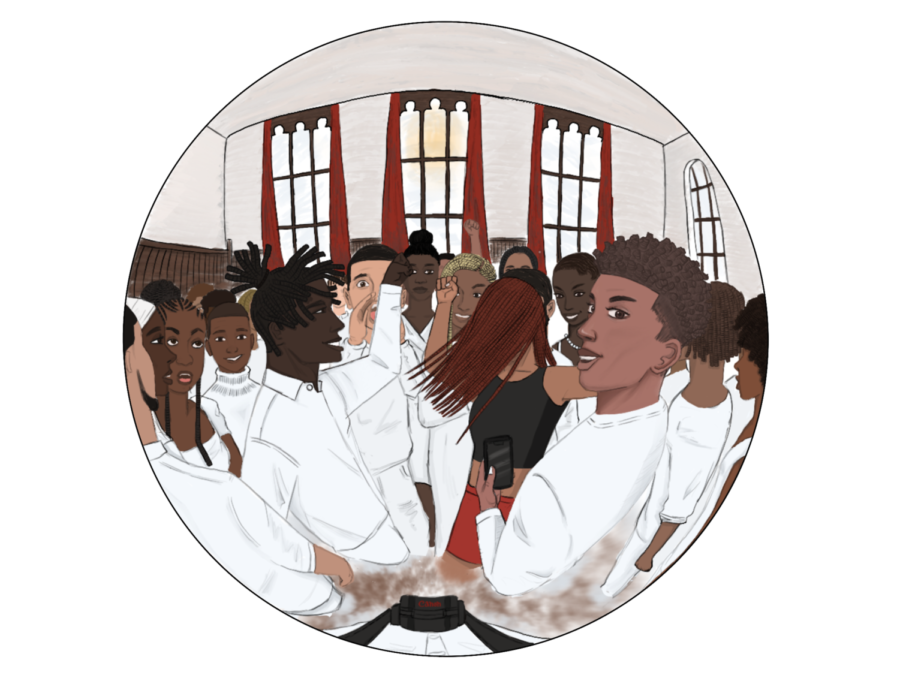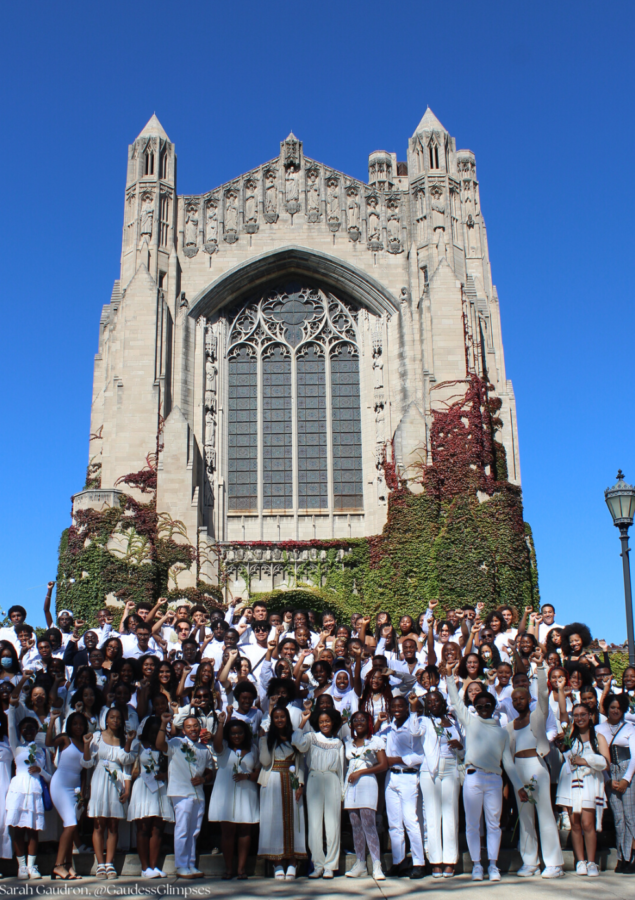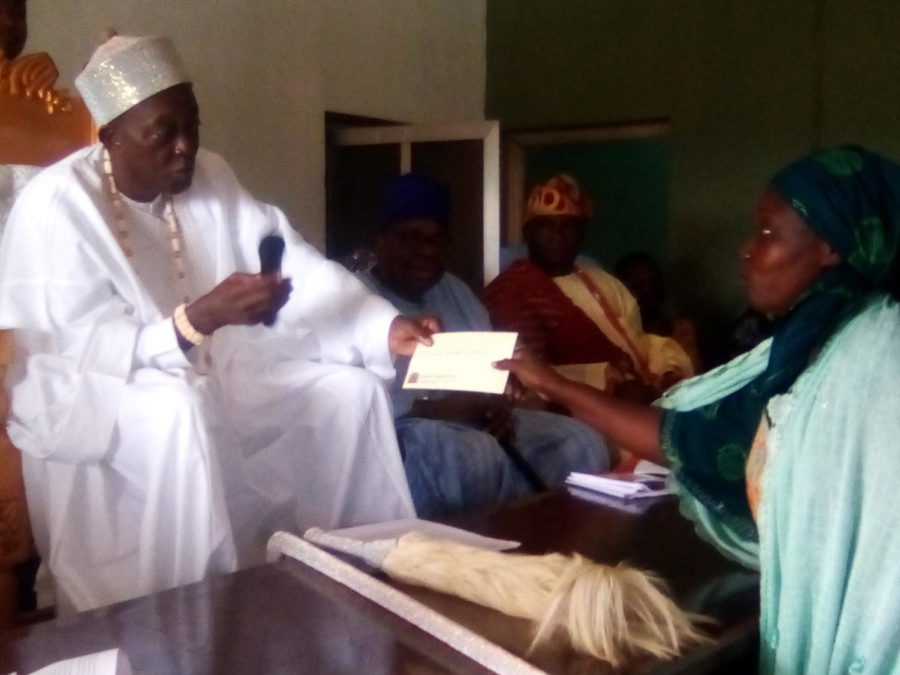Black. Is it the description of a phenotype? Is it the definition of an individual who comes from a particular background? Is it a culmination of experiences? Does possessing Black genes make one Black?
In our current society there are many ways people define Black, and many different opinions on what qualifies a person to be considered so. Some may argue that a person is Black because their physical features present that way, while others may argue a person is Black simply because they have Black ancestry. Some may say that one can be Black by proximity, whether that is growing up in a Black community, or being raised by Black parents. Some may say they are Black because they have been treated as such their whole life. But what does it really mean to be Black, and who gets to claim it?
One argument is that being Black isn’t simply based on appearance, but also one’s personal characteristics. Some people argue that even if a person is Black-presenting, if they have alternative interests to what is stereotypical to Black people, then they aren’t “truly Black”. The problem with this argument is that it limits the potential of Black people as individuals, characterizes us as a monolith, and reduces the characteristics of Black people to a set of actions, instead of a physical identity shared by a variety of people who have varying personalities. Being Black is not merely liking rap music, dressing a certain way, using African American Vernacular English (AAVE) every time you speak, being athletic, growing up in a low-income environment, or any of the other stereotypes used to categorize Black people. If that were true, it is then possible for a non-Black person to “act Black” and by default feel as though they partake in the Black experience. It is not possible to be Black by proximity, relating to Black experiences doesn’t make you Black, so this argument is invalid.
However, while being Black is not simply a set of character traits, I do believe it is possible to be out of touch with one’s Blackness. There is an experience, a culture that surrounds being Black; though there are many variations based on nationality and ethnicity, as Black people we can relate to a certain culture that is unique to us. This culture means different things to different people, but in the same way that many other racial and ethnic groups relate to each other on the basis of race or ethnicity, the Black Diaspora is connected through cultural awareness, which can be described as a knowledge of one’s traditions, customs, heritage, and history. This cultural awareness is a part of what it means to be Black.
Oftentimes, when a Black person is not raised around this cultural awareness, they do not develop the inclination that many Black people share. This can cause a feeling of disconnect due to being sheltered by their family, social status, or environment from the struggles, culture, and experiences that Black people face as a community. This lack of exposure deprives one of a safe space and community that can only be found amongst other Black people. Because of this, many choose to assimilate to Eurocentricity. They begin to despise the things that socially make one identifiable as a Black person: their hair, their culture, and even connections with other Black people. This assimilation causes one to be “out of touch”: When they go into the world where race is first base in categorizing a person, they cannot cope because they don’t understand what it means to be Black outside of the physical traits. Many of them struggle to find solace in other Black people because their whole lives they have been deprived of their Black identity.
On the flip side of this, there are people who think because they grew up in a Black community, or possess some Black genes, they by default they must be Black too. We live in a society where your phenotypical race plays a huge role in your treatment. There are so many struggles the Black community faces on the basis of phenotype. If a person is to go into an interview for a corporate job and the interviewer is racist, they are going to be treated based on what the interviewer can infer from how they look. White-presenting or racially ambiguous people are somewhat free from the stigma and stereotypes that come with being Black because they are not identifiable to the potentially racist others. There is a certain level of privilege that a white-presenting or racially ambiguous person is granted because, without any prior knowledge of background, they are not mistreated the way a Black person would be, regardless of whether or not they possess Black genetics. If a person has to actively validate or prove their blackness with their grandma’s pictures, it is because they are not phenotypically Black, and they should probably take a step back and reevaluate what they think qualifies a person as Black.
Many people still use the one-drop-rule and other harmful ideologies to categorize someone as Black. The only mixed-race people in the 1950s that were able to pass were the ones that the white people could not identify. This proves the point that society treats (treated) you based on your phenotype. And who can blame them for doing so? No one wants the burden that comes with being Black. It is a privilege to be able to decide when and where you want to be Black and many people knowingly or even unknowingly use it to their advantage. If you are half Black genetically but you phenotypically present as something else, no one is looking at you and judging you as a Black person because your genetic makeup is not present in your looks. You may be part of a minority community but if you have pale skin, and loose, blonde hair, the world does not discriminate against you in the same way. Your natural hair is not being called unprofessional, you are less likely to be called slurs, your intelligence is not being questioned, and the stereotypes that a Black person has to deal with do not apply to you on the basis of race. The only way you would be associated with the Black community is if you were seen with your Black/mixed family members or if you showed a photo. You have the ability to deny your Blackness when it is convenient, and no one would bat an eye. You are absolved from a lot of the race-based discrimination the Black community faces because you are not a Black person. Now that doesn’t mean you don’t feel the effects of racism and the impact it has on the Black community, like a lack of significant resources, but your societal image is not compromised because of your physical appearance.
There are people who feel that because phenotypically Black people are affected by issues like employer discrimination (on the basis of race) and can therefore relate with Black people from this shared experience, they get to categorize themselves as Black. This is harmful because it reduces Blackness to a set of “universal” experiences and struggles, treating Black people as a monolith. When a person who is not a part of a minority claims to be part of the marginalized community, it undermines the struggle that that minority goes through. There is a distinct difference between culture and experience. Relating to the experiences of a Black person doesn’t make you, yourself, Black if you too are not also phenotypically Black. There is no such thing as being Black by proximity to experiences because if that were the case, many other minority groups could claim Blackness since the issues they face are comparable, which doesn’t make any sense.
This is not by any means an argument that mixed-race people should not acknowledge their heritage, but one can never fully understand the Black experience without possessing the identifiable, physical traits. Meghan Markle is a prime example. She is a mixed woman who could very easily pass as white to some people. She even stated that she didn’t claim to be Black and wasn’t considered Black until she was launched into the spotlight. Yet, many Black people adopted her into the community, despite she herself not originally identifying as Black. Now, she speaks on racism and her experience from the viewpoint of a visibly Black person because she has had a taste of what it’s like (and for that I salute her) and has used this view to build a platform for herself. But the reality of the matter is that her physical appearance hasn’t changed, and it is very likely that she would never have experienced the things she is now dealing with, had she never been put under public scrutiny on the basis of her racial background. There are many people today who only claim Blackness for the immediate benefits; no one wants the long-term burden that comes with it.
So while the Black experience is something we share as Black people, that in and of itself is not what makes us Black. A person is not Black simply because one of their parents or grandparents is. A person is not Black because they like things that are stereotypically Black. A person is Black because when the world looks at them without knowing their history, what their parents look like, what they experience, it sees a Black person. A person is Black because it is a phenotype, because they exhibit the features and physical qualities that are shared amongst the Black Diaspora.










